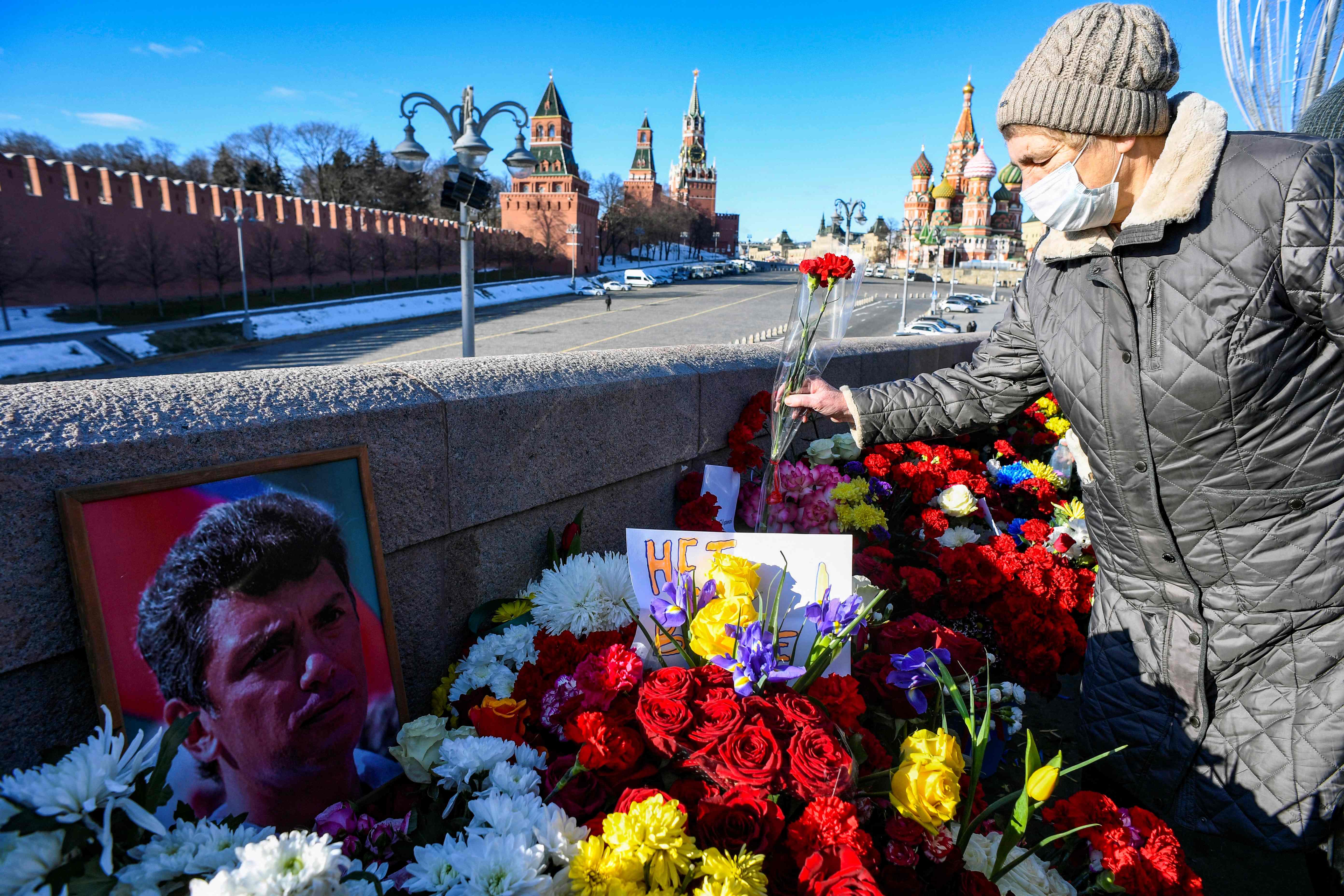
A Russian opposition politician who was among the harshest critics of Vladimir Putin was shadowed by a government agent for almost a year before he was shot dead, a new investigation has claimed.
Boris Nemtsov was followed by a team of agents of the Federal Security Service (FSB), Russia’s federal security agency, on at least 13 journeys before he was assassinated, according to a joint investigation conducted by the BBC, Bellingcat and The Insider published on Monday, a little more than seven years after the killing.
One of the agents who tailed Nemtsov was identified as Valery Sukharev, who the report said has been linked by a previous Bellingcat investigation to two apparent attempted poisonings of Putin critics. Mr Sukharev’s travel records were obtained from leaked FSB data and matched with Nemtsov’s own records.
The FSB team tailed Nemtsov on almost all his trips across Russia between May 2014 and February 2015 – with the last one just 10 days before he was assassinated on 27 February 2015, the report found. Spies would sometimes reach locations hours or days before Nemtsov’s arrival and leave before or after he died.
This was a pattern similar to how other opposition members, who were victims of poisoning in Russia, were tailed, according to Bellingcat.
FSB agents, however, did not follow Nemtsov during his last trip from Moscow to Yaroslavl, the report found.
He was later shot dead in front of his girlfriend, as he crossed a bridge in view of the Kremlin.
The assassination occurred a day before he was due to lead a huge rally against Russian military intervention in eastern Ukraine, where Russia-backed separatists have been fighting with Ukrainian forces since 2014 in a drawn-out conflict that has claimed the lives of more than 14,000.
“I’m afraid Putin will kill me. I believe that he was the one who unleashed the war in the Ukraine. I couldn’t dislike him more,” Nemtsov had told Russia’s Sobesednik news website earlier on 10 February 2015.
It was one of the most high-profile political killings since Mr Putin, a former Soviet spy, came to power in Russia.

Nemtsov was once seen as a successor to then-president Boris Yeltsin and had served as his deputy prime minister. He later became a thorn in the side of Mr Putin’s administration as he advocated international sanctions against him and exposed alleged corruption in government ranks.
Authorities arrested five men of Chechen origin for Nemtsov’s murder and jailed them. They subsequently went on to claim their pre-trial confession was made under duress.
The new investigation has claimed that Mr Sukharev, the FSB agent, was accompanied by Alexey Krivoshchekov, another known agency operative who was later implicated for poisoning Alexei Navalny, a prominent Russian opposition politician and vehement critic of Mr Putin.
In 2020, Mr Navalny, 45, was poisoned using Novichok, a nerve agent developed in the Soviet Union that is banned under international law, during a flight to Moscow which was diverted to Omsk in a last-ditch attempt to save his life.
There is no evidence to establish whether Mr Sukharev or Mr Krivoshchekov were involved in Nemtsov’s murder, the investigation pointed out.
It also revealed that 45 out of a total of 55 forensic analyses during the investigation into Nemtsov’s murder were conducted by the FSB’s own Criminalistics Institute.
The report has been dubbed a fabrication by the Kremlin, whose spokesman Dmitry Peskov said: “All of this has nothing to do with the Russian government. It looks like another fabrication.”
The FSB has not responded to the claims.







